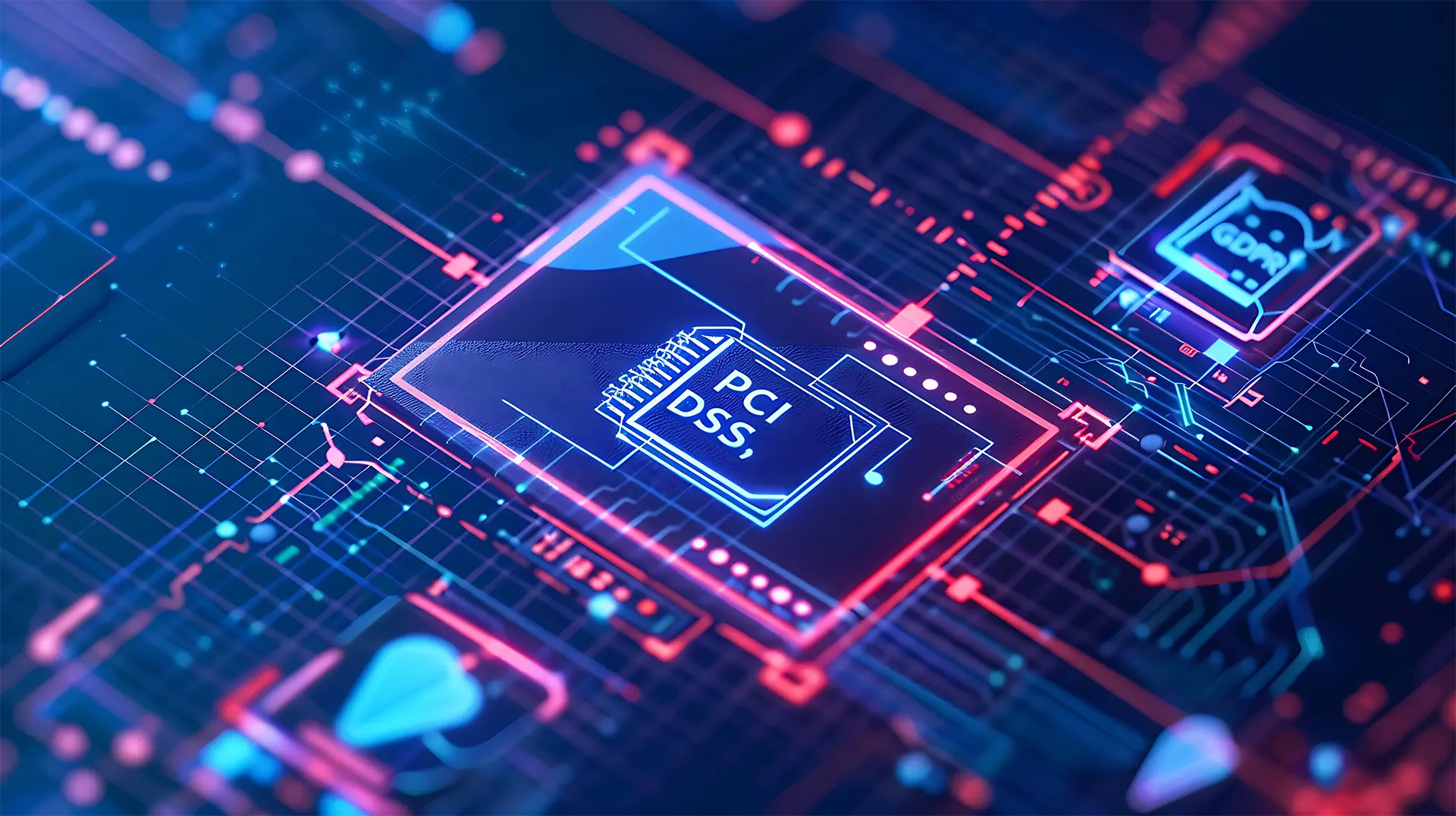Table of contents
- What is PCI DSS?
- Why is PCI DSS certification important?
- Requirements for PCI DSS certification
- The certification process
- Benefits of PCI DSS compliance
- The importance of PCI DSS certification for credit card data security
PCI DSS certification (Payment Card Industry Data Security Standard) is essential for all companies that handle, process, or transmit credit card data. This security standard was developed by the Payment Card Industry Security Standards Council (PCI SSC) to protect cardholder data and prevent payment card fraud. Compliance with the PCI DSS standard is mandatory for all service providers and merchants handling payment information.
What is PCI DSS?
PCI DSS is a global security standard created to ensure the protection of payment card data. It was developed through the collaboration of major credit card companies like Visa, MasterCard, and American Express. PCI DSS aims to reduce payment system vulnerabilities and improve information security. The standard applies to all entities that store, process, or transmit credit card data, including e-commerce companies, physical retail points, and service providers.
Why is PCI DSS certification important?
PCI DSS certification is crucial to ensure the security of credit card transactions and protect cardholder data. Without proper implementation of the security measures outlined in the standard, companies are at risk of data breaches that can lead to severe financial consequences and damage their reputation. Compliance with PCI DSS not only protects customer data but also demonstrates a company’s commitment to information security.
Requirements for PCI DSS certification
PCI DSS certification requires adherence to a detailed set of requirements designed to protect payment card data and ensure transaction security. These requirements are divided into six main categories, each comprising multiple specific subcategories. Here is a detailed description of each category:
Build and maintain a secure network
- Install and maintain a firewall configuration to protect cardholder data
A firewall acts as a security barrier between a company’s secure internal network and external networks like the Internet. The firewall configuration should be customized to block unauthorized access and allow only necessary traffic.
- Do not use vendor-supplied defaults for system passwords and other security parameters
Default settings, such as standard system passwords, are widely known and easily exploitable. They must be replaced with secure, unique passwords and configurations.
Protect cardholder data
- Protect stored cardholder data
Companies must adopt measures to protect stored card data, such as encrypting credit card numbers. Only a minimal amount of data should be retained and only for the necessary duration.
- Encrypt transmission of cardholder data across open, public networks
During transmission across open networks (like the Internet), cardholder data must be encrypted to prevent interception by unauthorized parties.
Manage vulnerabilities
- Use and regularly update antivirus software
It is essential to have up-to-date antivirus software on all systems that may be infected by malware. Antivirus programs must be configured for frequent scans and automatic updates.
- Develop and maintain secure systems and applications
Operating systems and applications must be developed and maintained following secure coding practices. This includes timely fixing of known vulnerabilities through patches and updates.
Implement strong access control measures
- Restrict access to cardholder data by business need-to-know
Access to credit card data must be granted only to employees with a specific business need. Access control policies must be documented and strictly enforced.
- Identify and authenticate access to system components
Each individual with access to system components must have a unique identifier (user ID). This helps in tracking activities and preventing unauthorized access. Strong authentication methods, such as two-factor authentication, must be used.
Monitor and test networks regularly
- Track and monitor all access to network resources and cardholder data
Companies must implement logging systems to monitor access and activities on their systems. Logs must be regularly reviewed to detect and respond to suspicious or unauthorized activities.
- Regularly test security systems and processes
Security assessments must be conducted periodically to identify and address vulnerabilities. This includes penetration testing, vulnerability scans, and security audits.
Maintain an Information security policy
- Maintain a policy that addresses information security for all personnel
Companies must develop, document, and maintain information security policies. These policies should cover all aspects of data security, including staff training, operational procedures, and incident management.

The certification process
Achieving PCI DSS certification requires a systematic and continuous approach. Companies must first assess their current compliance with PCI DSS requirements, often through an assessment conducted by a Qualified Security Assessor (QSA) or through a Self-Assessment Questionnaire (SAQ) for less complex environments. They must then implement corrective measures to resolve identified non-compliances.
Once corrections are completed, a QSA conducts a full audit to verify that all security measures are in place and functioning correctly. If the company passes the audit, it receives PCI DSS certification, which must be renewed annually to ensure continued compliance.
Benefits of PCI DSS compliance
Being compliant with the PCI DSS standard offers numerous advantages, including:
- Data protection
Enhancing information security and reducing the risk of data breaches.
- Customer trust
Increasing customer confidence by demonstrating commitment to securing their payment data.
- Avoiding penalties
Avoiding fines and penalties imposed by credit card companies for non-compliance.
- Competitive advantage
Differentiating from competitors by demonstrating a high level of transaction security.
The importance of PCI DSS certification for credit card data security
PCI DSS certification is essential for all companies handling credit card data. Adopting and maintaining the security measures required by the standard not only protects cardholder data but also enhances the company’s reputation and customer trust. Complying with PCI DSS means committing to protect sensitive information and ensuring that payment card transactions are secure and reliable.
FAQ
- What is PCI DSS?
PCI DSS is the data security standard for payment cards, developed to protect cardholder data from fraud and breaches. - Who does PCI DSS apply to?
PCI DSS applies to all companies that store, process, or transmit credit card data, including service providers and merchants. - What are the main requirements of PCI DSS?
The main requirements include building a secure network, protecting cardholder data, managing vulnerabilities, controlling access, monitoring networks, and maintaining an information security policy. - Why is it important to obtain PCI DSS certification?
Certification is important to protect credit card data, prevent fraud, increase customer trust, and avoid penalties. - How is PCI DSS certification obtained?
Certification is obtained by assessing compliance with PCI DSS requirements, implementing corrective measures, and passing an audit conducted by a Qualified Security Assessor. - What are the benefits of PCI DSS compliance?
Benefits include data protection, increased customer trust, avoidance of penalties, and improved competitiveness. - How often must PCI DSS certification be renewed?
The certification must be renewed annually to ensure continued compliance.
